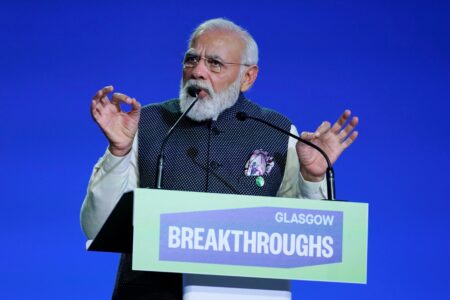
Knowing even the basics of the best languages to learn can get you far.
But with around 6,500 languages in the world, how do you know which to invest your time and effort in?
If you’re looking for the best languages to learn to succeed at work, then the top CEOs may just have the answers you seek.
Reasons to master the best languages to learn
Numerous studies on bilingualism indicate that knowing a second language enhances the brain’s function. It improves your ability to stay focused and multitask well.
According to a study by Penn State, this is due to their ability to switch between languages in their minds, which improves their mental flexibility.
In this journey, you’ll build your self-esteem, a strong sense of identity, and a deeper understanding of cultural diversity.
Being fluent in more than one language also sets you apart in countries where English is the official language as few are bilingual here.
The UK, for all its proud history of the English language, finds itself at the bottom ranks, with only 34.6% of adults capable of speaking more than one language.
In the US, the US Census Bureau reports that only 20% of all Americans can speak two or more languages.
Meanwhile, Indonesia takes the crown for being the largest and most bilingual country. Out of the 275.5 million who reside there, 200 million are bilingual or multilingual, capable of speaking Indonesian, Javanese, and English.
But being fluent in the best languages to learn isn’t just about bragging rights. It’s about how they:
- make you stand out
- make you a better communicator and, thus a better manager and leader
- help you impress more clients
- boost your career trajectory
After all, if you intend to climb the C-suite ladder — a crowded, competitive, and merciless task — you need every edge you can get.
According to the decades of experience of senior executives who have seen what it takes to get to the top, knowing the most important languages to learn for business is one of them.

Sundar Pichai, CEO of Google and Alphabet, is fluent in English and Tamil — one of the oldest languages in the world. Source: AFP
Why CEOs think knowing one language is not enough
According to the book “The Corner Office: Indispensable and Unexpected Lessons From CEOs on How to Lead and Succeed,” more than 70 chief executives and other leaders were found to share these five essential qualities for success:
- Passionate curiosity
- Battle-hardened confidence
- Team smarts
- A simple mindset
- Fearlessness
Learning a new language hones at least one of the traits above — which explains why many of the top CEOs and richest people in the world are multilingual.
One famous example is Mark Zuckerberg, the founder and CEO of Meta, who picked up Mandarin in addition to his mother tongue.
And he doesn’t just have a basic understanding. Zuckerberg is able to give speeches and answer questions in the language.

One of the best languages to learn has to be Mandarin — a language that Zuckerberg is fluent in. Source: AFP
Level up in your career when you choose one of the most important languages to learn for business
There is no denying that being bilingual or multilingual can advance your career — especially in the field of business.
A 2024 study conducted by educational student travel leader Rustic Pathways showed that US companies are actively seeking bilingual speakers, even going to the extent of making it a job requirement.
- California has the highest percentage of jobs requiring a second language at 10.98%, with Spanish being the most sought-after language.
- New York comes second at 9.35%, with Chinese and Italian as top languages wanted by employers.
- Florida places third at 9.07%, with Spanish being the most in-demand second language.
Another study reported that those possessing the ability to speak and understand a second language boosted their salary and job prospects by as much as 35%.
So if you’re still dedicated to putting in time for the best languages to learn, these are the ones to pick according to CEOs who have big companies and big bank accounts to match.
And remember, though it’ll seem hard, it is never too late to master a new language.

President of the Asia Society and former Australian prime minister Kevin Rudd speaks Mandarin fluently. Source: AFP
1. Mandarin
Mandarin was seen as the top language in a business setting for many years. This is no surprise since China was the most populous country in the world until India surpassed it in April 2023.
It is the most widely spoken language in the world today, with 1.1 billion native speakers.
The CEO of Meta told students at Beijing’s Tsinghua University – in Mandarin – that he continues to study the language daily in order to communicate with the family of his wife, Priscilla Chan.
However, it is believed that he also learned the language for business reasons, such as potential negotiations with the Chinese government regarding its ban on Facebook.
Aside from Zuckerberg, the marketing director of Royce Leather, Billy Bauer, is another entrepreneur who took up Mandarin to help his business.
Bauer credits his success in China to taking the time to learn the language and says that he would have struggled had he spoken only English. His ability to speak Mandarin allowed him to gain Chinese executives’ trust and carry out day-to-day business dealings in the country.

Outgoing Daimler CEO Daimler Dieter Zetsche (left) and his Swedish successor Ola Kallenius (right) in 2019. Zetsche is reportedly fluent in English, French, Latin, Portuguese, and Spanish, while Kallenius speaks English, Swedish, and German. Source: AFP
2. French
CEO of one of the largest retail pharmacies in the world, Walgreens Boots Alliance, picked up French to expand his business.
Stefano Pessina is a native Italian speaker who learned French and English, earning him his spot on the Forbes Fortune 500 list. He notes that he decided to become trilingual after noticing that France was the country buying the second-highest amount of his company’s products.
Learning French will also come in handy, given that it is the official language of 29 countries and global institutions such as the United Nations, the North Atlantic Treaty Organisation, and the World Trade Organisation.
In the European Union, an estimated 12% of the population speaks French as their first language; outside of the EU, you’ll find that Africa is the continent with the most French speakers in the world, so if you hope to leverage that advantage, you’ll know which language you want to start with.

Michael Bloomberg used Spanish to target the Latino community in New York. Source: AFP
3. Spanish
CEO of Bloomberg, Michael Bloomberg’s Spanish knowledge helped him save the Latino community in New York during Hurricane Sandy.
Though his Spanish isn’t perfect, Bloomberg wanted to make sure as many people as possible received the important news about the hurricane so that they would be informed about how to weather the storm.
As the official language in 20 countries and the world’s most widely spoken Romance language, there’s no doubt that a proficiency in speaking Spanish will come in handy when you’re talking business. Plus, Spanish is the world’s second-most spoken native language after Mandarin, so chances are, you’ll be able to flex your skills even during non-work-related conversations.

Some of the most successful tech companies have headquarters in Germany, the region’s economic powerhouse, making German one of the most important languages to learn for business. Plus, knowing German makes it easier to navigate the Christmas markets in the country too. Source: AFP
4. German
Former CEO of SAP Hewlett Packard Leo Apotheker’s fluency in German definitely helped him while managing the German software multinational SAP.
However, this polyglot can speak more than English and German. He is fluent in Dutch, French, and Hebrew as well. His solid command of five languages and his multilingual resume offered him many job opportunities.
In fact, this gave him the opportunity to become the CEO of HP as the big multilingual company was looking for a global person to run its corporation.
Similar to Apotheker, Nestle’s CEO, Paul Bulcke, rose to the top thanks to his mastery of six languages.
Fluent in English, German, Dutch, French, Spanish, and Portuguese, there is no denying that he is the perfect fit to be CEO of a company with such an international scope.
Bulcke noted that “being multilingual creates a stronger connection with peers, employees, and consumers, which is critical for a business like ours.”

One of the best languages to learn today is Swedish — aside from the business sense, you’ll also learn how to actually pronounce some of the IKEA products too. Source: AFP
5. Swedish
Swedish makes it onto this list of best languages to learn not just because of the popularity of brands like IKEA, H&M, Volvo, and Spotify but because with around 10 million native speakers, it is the fourth most spoken Germanic language and the first among its type in the Nordic countries overall.
Mike Whaites, the former CEO of Finning’s, the world’s largest Caterpillar dealer, speaks fluent Swedish and native English.
After deciding to expand his business in Sweden, he took up the language and needed to make sense of the country’s bureaucracy and tax regulations. His determination made him proficient enough to communicate effectively with his Swedish clients in just four months.
Good news for those who hope to follow in Whaites’s footsteps: Swedish is classified as “Category 1” by the Foreign Service Institute — meaning it’s easier for both native and non-Swedish people to learn the language, so you’ll be able to speak it in no time!
Less conventional but still one of the best languages to learn
Tiffany Richards decided to take another route, unlike the other CEOs on this list.
The co-owner of Peaceful Warrior Martial Arts and Healing Center learned sign language to expand her yoga business to a wider audience.
She claimed that learning sign language helped her communicate with a community of often neglected people and increased her company’s reach.
Disclaimer: This article was last updated on April 15, 2025.










